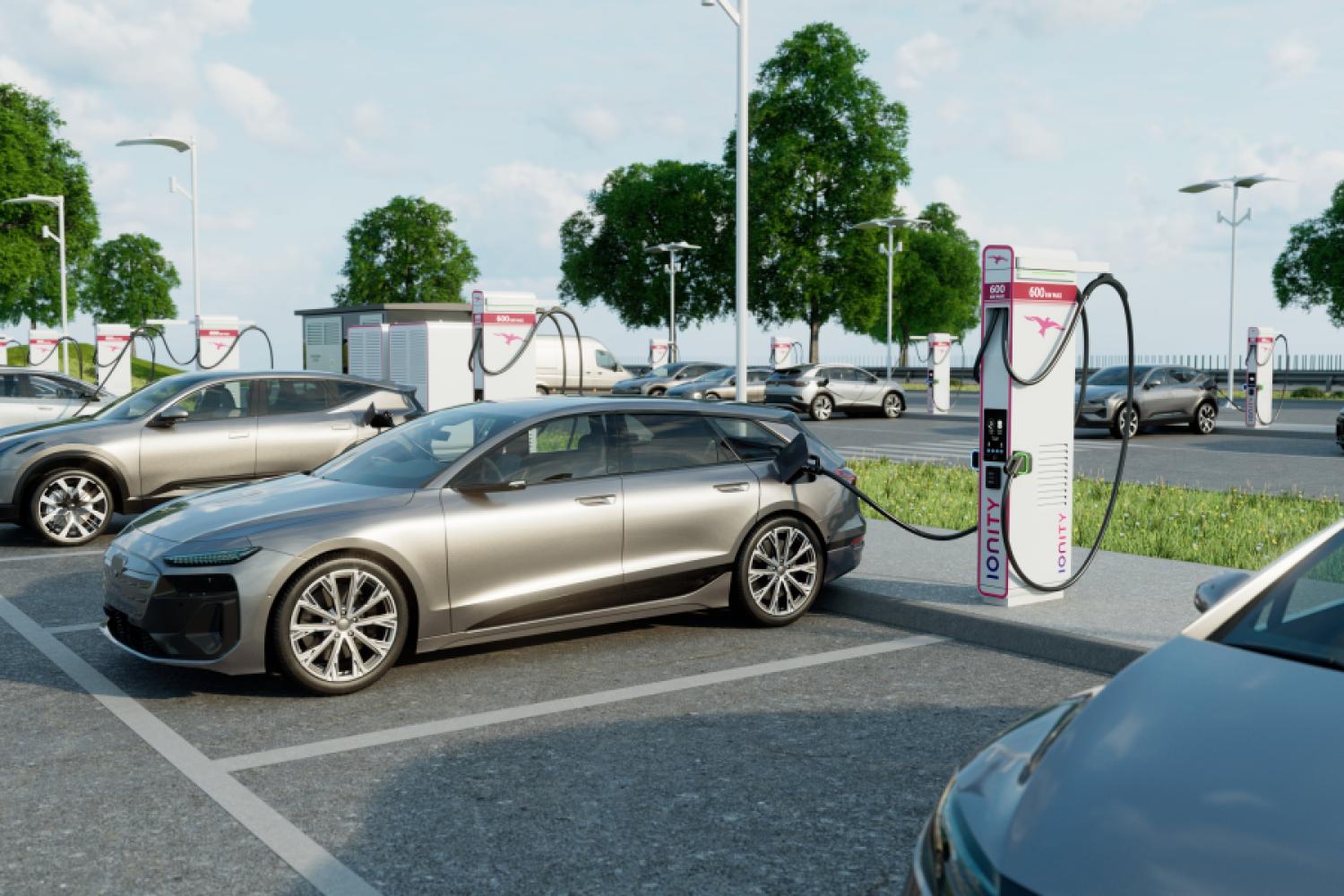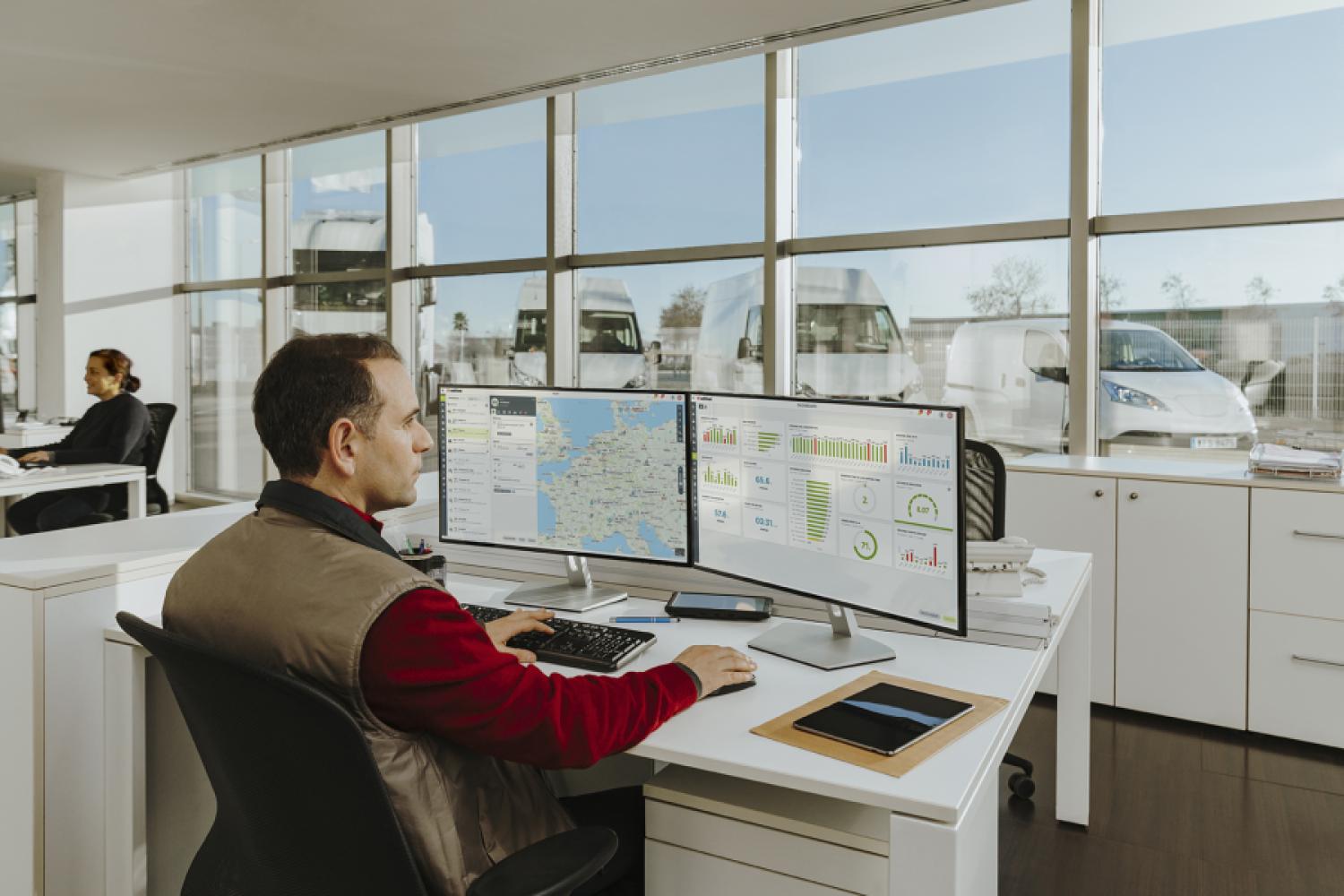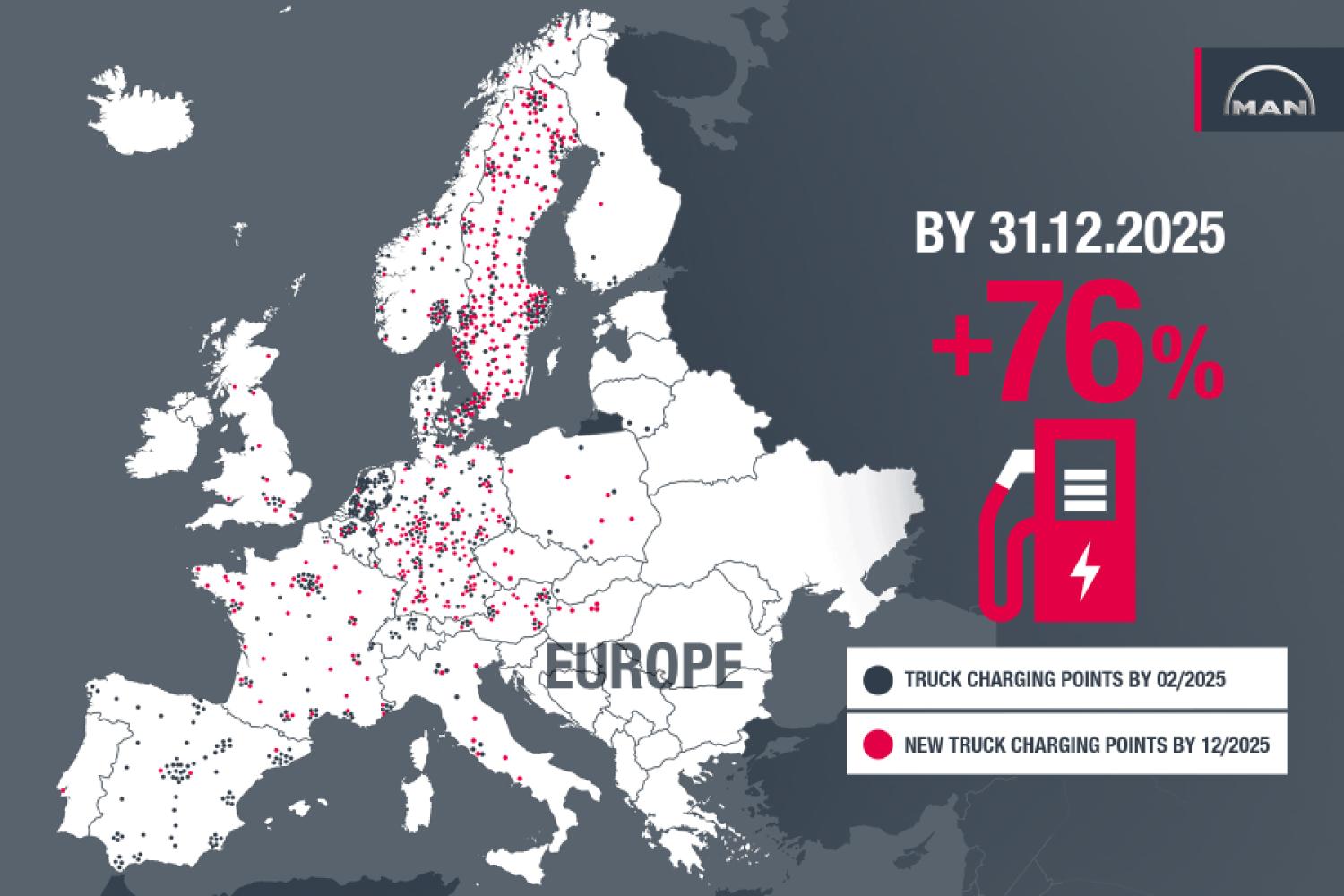February 21, 2025
Consumer Goods: Retailers Desire Bureaucracy Reduction
Reduce piles of paperwork and eliminate reporting obligations: According to providers of fast-moving consumer goods, the new federal government should prioritize bureaucracy reduction at the top of its new economic policy agenda in Germany. This is the result of a quick survey conducted by Bochum-based SCM software specialist Setlog among its customers in the consumer goods sector on February 20. Eighty-five percent of the surveyed companies stated that reducing bureaucracy is the most important measure the government should advance. For the survey, companies had to prioritize demands for the new government, published in an open letter by more than 100 associations on the Economic Day (January 29, 2025). Out of ten demands, they could select up to three.
Second in the ranking was the issue of energy prices. More than half of those surveyed (61 percent) believe that the government must ensure internationally competitive energy prices. The third demand is for an infrastructure and service initiative. Forty-two percent of respondents believe that road, rail, waterways, air traffic, and digital administration should be in the European top league. The reduction of corporate taxes holds almost as much importance for the surveyed company representatives as infrastructure. Thirty-nine percent believe that the burdens on companies and employees should be reduced to at least the EU average level.
If the economic situation in Germany does not improve, the surveyed firms are already planning to take consequences this year. More than half (55 percent) plan to reduce staff and increase product prices (52 percent). About one in three companies (39 percent) is preparing to tap into new procurement markets. Only a few of the respondents (15 percent) are considering a short-term relocation of production and sites this year.
In contrast, the medium-term consequences look different in three to five years: If the economy continues to stagnate, 27 percent would consider relocating the site today. Even more companies (61 percent) would lay off staff and tap into new procurement markets (45 percent).
"The surveyed firms from our customer pool are at a very high level in terms of process optimization or cost reduction. They use state-of-the-art software tools. Precisely for this reason, politics must take the opinion of the consumer goods sector and impending consequences seriously. Germany needs an economic turnaround now. And this country with its social market economy must once again become an attractive location for investors and foreign specialists," emphasizes Setlog CEO Ralf Düster.
For the Setlog survey, an expert panel of 33 managing directors, board members, and executives from the procurement and supply chain management sector of leading companies in the consumer goods sector participated. The majority of surveyed firms (52 percent) generate annual revenues between 50 and 500 million euros. Roughly a third (36 percent) have between 250 and 1,000 employees. Twenty-seven percent have more than 1,000 employees. The quick survey provides an up-to-date mood picture of the industry and does not claim to be representative. sln
February 20, 2025
E-Commerce: Fashion Platform About You Promotes Participation in Federal Election
With the campaign "Your Voice Counts," the Fashion-specialized e-commerce platform About You is campaigning for high voter turnout in the upcoming federal election on February 23, 2025. The initiative aims to motivate young people, in particular, to exercise their right to vote—whether at the polling station or conveniently by postal vote. About 59.2 million people in Germany are eligible to vote, but nearly a quarter of those eligible stayed home during the last election in 2021.
"Every vote can make a difference – and we want to raise awareness with our campaign that democracy is not a given," says Tarek Müller, co-founder and co-CEO of About You.
The campaign will be spread across a variety of channels to reach as many people as possible and motivate them to vote. On February 11, 2025, customers of the online retailer received the first mailing with important information about the federal election. Additionally, About You claims to ensure multiple election reminders through targeted CRM mailings, push notifications, and its WhatsApp channel.
On social media, the campaign will be accompanied by videos, stories, and interactive content with content creators to activate young voters. The trading platform also plans to make a statement with a temporary logo change to "ABOUT DEMOCRACY" to further raise awareness of the election's importance.
On February 23, 2025, the day of the federal election, the campaign reaches its peak: Visitors to the About You online store are asked if they have already voted. Those who click "Yes" shop as usual. Those who click "No" are automatically redirected to a special landing page. The landing page is titled: "This Could Be Your Future If You Don't Have a Choice Anymore."
Here, users will find all relevant information about the election, instructions on the voting process, and helpful features such as a link to the "Wahl-O-Mat" to find the party that aligns with their beliefs. The federal election decides on key issues such as climate policy, education, and social justice.
"With our campaign, we aim not only to inform but to motivate and activate people to shape their own future," says Stefan Tobel, Vice President Demand, About You. sln
Action Plan Robotics for Europe to Strengthen Competitiveness
VDMA Robotics + Automation, a network organization of the robotics industry in Europe, has addressed politics with an action plan. They call for action to halt the loss of global competitiveness of European economies, according to a press release dated February 20.
"Europe's economy is falling behind in international competitiveness and urgently needs to catch up," says Dr. Dietmar Ley, Chairman of VDMA Robotics + Automation. "China, for example, has consistently shifted its focus to high-end technology and high-quality manufacturing."
The Robotics Action Plan for Europe is directed at policymakers across Europe, including national governments and EU institutions. The main recommendations of the paper are:
- Robotics Offensive for Europe: Europe is increasingly challenged by aggressive industrial policy strategies in other countries – as the America First agenda of the United States and China's five-year plan for robotics have shown, according to the VDMA. With a targeted robotics offensive, Europe can regain its competitiveness, ensure autonomy, manage demographic change, and facilitate the transition to climate neutrality.
- More venture capital for Europe's startups: Urgently needed additional venture capital must, according to the VDMA, be mobilized through a reform of the regulatory framework for institutional investors.
- Develop a roadmap for competitiveness: Europe's progress in robotics and artificial intelligence must systematically undergo a benchmarking analysis with developments in Asia and North America, it says. Concrete national and Europe-wide technology roadmaps are needed.
- Focus on scalability: Policymakers in Europe must, according to the action plan, create an environment that not only brings forth innovations but also transfers them into series production and broad application. tm
Election Programs: What Parties Plan for Ports
(dpa) - The seaports and inland ports are an important component of the German economy—and as such, they are also present in the election programs of the major parties for the federal election. A demand from associations that the federal government should annually pay 500 million euros to the states for the seaports is not taken up by the parties.
The words "port" do not appear directly in the election programs of the FDP and BSW, while the FDP advocates for the expansion of waterways. An overview of the other programs:
CDU/CSU wants to further develop port strategy
In the Christian Democrats' election program, it states: "Those who want to expand their trade relations must think of their ports as gateways to the world and drive them forward ambitiously." Maritime is an important economic sector. The parties promise to further develop the national port strategy from 2024 and to "strengthen" waterways.
The national port strategy adopted by the federal cabinet in March 2024 defines goals for the development of German ports: They should become less emitting, more digital, and more efficient in the future. The strategy lists around 140 measures. Industry representatives criticize that the strategy lacks investment commitments.
AfD calls for German control of ports
The AfD also deals with German seaports, which are of central importance to the entire economy. They are increasingly under pressure and being outpaced by international competition. The AfD advocates, among other things, for dismantling unspecified fees and regulations. "In general, seaports must remain under German control as part of critical infrastructure."
SPD also relies on port strategy
In their government program, the Social Democrats announce that the waterway infrastructure will be "reinforced," the national port strategy will be quickly implemented, and the modernization of ship fleets will be supported. The party also highlights the importance of e-fuels for shipping.
Greens promise financing concept
The Greens advocate for rapidly establishing climate-neutral energy supplies such as shore power in ports. "We support the sustainable development of our ports with a long-term financing concept." Sustainable fuels will be produced for shipping. Elsewhere in the program, the party announces plans to protect ports from threats.
The Left opposes sell-off
The Left warns against selling ports to authoritarian regimes and wants to protect them as critical infrastructure. The Left also writes that seaports should cooperate better with each other than before and be better connected to the hinterland by rail. "The federal government must finally take more responsibility for the enormous port investments." tm
February 14, 2025
Sustainability: Associations Demand Carbon Neutrality by 2045
Before the federal election, associations from the finance, start-up, and recycling economy sectors, energy generation and efficiency, as well as food and textile production, advocate for the interplay of competitiveness and carbon-neutral production. This is revealed in a press release from the German Federation of Waste, Water, and Recycling Management (BDE).
The associations, representing renowned manufacturing companies, thus account for more than two million jobs. In a joint appeal, they demand that Germany become carbon neutral by 2045. Required for this are investments in future technologies and infrastructure, the expansion of renewable energies, and more circular economy.
Companies see climate and environmental risks as the greatest threat to the medium-term economic development (World Risk Report 2025). The Expert Council on Climate Issues calls for more ambition if Germany wants to achieve its climate goals. CEOs - also from the steel or chemical industry - publicly emphasize the necessary connection between climate protection and the economy. And yet, climate protection is hardly mentioned in the election campaign, says the BDE.
Before the federal election and with a view to the coalition negotiations, a cross-industry business alliance has thus formed. The associations jointly demand:
- Binding climate protection goals: Germany must become carbon neutral by 2045
- A consensus for climate protection: Constructively shape the "how"
- More investments in future technologies and competitiveness
The appellants behind the association's appeal are the German Savings Banks Association (DSGV); the Renewable Energy Association (BEE); the German Federation of Waste, Water, and Recycling Management e.V. (BDE); the Federal Association of German Startups (BVDS); the German Corporate Initiative for Energy Efficiency e.V. (DENEFF); the Federal Association of Secondary Raw Materials and Disposal e.V. (bvse); the Association of German Metal Traders and Recyclers e.V. (VDM) as well as the Federal Association for Sustainable Economy e.V. (BNW). sln
Bundestag Election 2025: BARIG Sees Germany Lagging Behind in Air Traffic
The airline association Board of Airline Representatives in Germany (BARIG) addressed German politics in a press release before the federal election. The persistently immense production costs faced by airlines in Germany have led to the country's air traffic – unlike its European or global counterparts – still not recovering after the Corona pandemic, according to the association. The bitter consequence for mobility, economy, and especially exports, according to BARIG: Not only are there fewer flights from Germany to abroad overall, but the number of flight connections is also generally shrinking. In 2024, it was 17 percent fewer than in 2019, according to the Federal Association of the German Aviation Industry (BDL).
Michael Hoppe, Chairman and Executive Director of the airline association BARIG (Board of Airline Representatives in Germany), says:
"The dwindling connectivity is alarming because it highlights how poor the conditions for air traffic are in Germany, while abroad it is booming under significantly cheaper conditions. The victims are not only the passengers who now have to make significant detours or efforts to reach their destinations, for example, for business meetings or trade fairs. Freight and cargo traffic also suffers massively. With every passenger flight that doesn't take place, no cargo can be transported in the belly, as is customary."
This particularly means a noticeable competitive disadvantage for companies selling their goods abroad or sourcing from there, Hoppe continues. That's worrying! If the future federal government genuinely intends to strengthen the German economy again, it must quickly and drastically improve the conditions for air traffic. tm
February 10, 2025
Daimler Truck Launches Billboard Campaign for German Federal Election
The commercial vehicle provider Daimler Truck has launched its own billboard campaign for the 2025 German federal election. According to the company, the campaign is driven by several questions: Which issues are of critical importance to the commercial vehicle industry? What needs to happen for road transport to become emissions-free? What are Daimler Truck's messages to politics, business, and society?
The result: Eight billboards on what Daimler Truck considers the most pressing issues for trucks, buses, and the commercial vehicle industry as a whole. Until the federal election on February 23, the manufacturer is gradually posting the billboards on its Daimler Truck LinkedIn channel. In doing so, the company provides context, delivers background information, formulates expectations, and makes demands. Andreas Gorbach, member of the Board of Management of Daimler Truck AG, responsible for Truck Technology, states:
“The fact is: CO2-neutral commercial vehicles are in mass production. However, the fact also remains: The economic conditions for our customers and the much too slow expansion of the necessary charging infrastructure are dramatically hindering the decarbonization of the commercial vehicle industry. If we don't change this, European commercial vehicle manufacturers will face draconian penalties. Because in this way, they will not be able to meet the European CO2 targets for 2030 through no fault of their own. This would massively endanger the competitiveness of European commercial vehicle manufacturers – especially as non-European manufacturers increasingly expand into Europe.” sln






